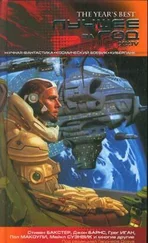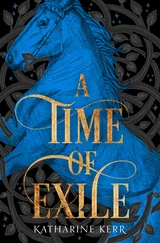Carolyn Ives Gilman
EXILE’S END
Let’s sing of the lightbeam journey
Of the man who was not a man
Sent by the Whispering Kindom
To search the sky for ghosts.
He followed the poison papers,
He followed the scent of secrets
He followed the footsteps of ashes,
Retracing the path of exile.
Can reversing exile set it right? [1] From “The Song of No.” The storysinging of the Manhu is a competitive sport. One team of two members will challenge another of equal skill. The first team will sing the story till they come to a question, which is like a riddle. The second team must know the answer in order to continue the story and ask their own question. Thus they alternate as the story unfolds.
The series of events that would make Rue Savenga the most reviled woman on Sarona began only minutes before closing time at the Orofino Museum.
The windows had been rain-streaked all day, and now had gone dark. Rue was at her desk, reading a new art history treatise she needed to review, when her wristband chimed.
“There is a gentleman here asking to see you,” the guard at the front desk said. “He says he’s come from Radovani.”
Radovani was seven light years away. Rue glanced at her calendar. No appointment. She could easily dodge this one. But the book was disappointing—simplistic ideas gussied up in jargon—and she needed a break. “All right, I’ll come down,” she said. That was her first mistake.
The parts of the museum beyond the public galleries were cluttered and utilitarian. Exposed conduits and plumbing ran along the ceiling above her as she paced down the scuffed-tile corridor lined with crates and display cases no one wanted to throw away. Emerging into the airy, sophisticated architecture of the lobby was a release from claustrophobia.
It was clear who her visitor was. He stood out for his stillness in the bustle of departing visitors—tall and slim, with long black hair pulled back in a tie. His hands were in the pockets of a jacket much too light for the weather outside.
Rue introduced herself. When she held out her hand, the young man stared at it for a second before remembering what to do with it.
“My name is Traversed Bridge,” he said; then, apologetically, “I have an unreal name as well, if you would prefer to use that.”
“No, your real name is fine.” Rue had no idea what he was talking about, but it seemed the polite thing to say. “You’ve come from Radovani?”
“I just arrived by wayport. I came directly here.”
“What can I do for you?”
He looked at the floor, as if at a loss for words. “I’m sorry,” he murmured. “I’m not good at this. They should have sent a woman.”
Mystified, Rue said, “You’re doing fine.”
He looked up. He had beautiful, liquid charcoal eyes. “I was sent by the Whispering Kindom of the Manhu. I have come to find our ancestors.”
None of this rang any bells with Rue. “I think they may have called the wrong person,” she said. “You probably want to speak to our ethnographic curator, Magister Hess.”
“No, I was given your name,” he said. He fished a card from his pocket. Her name was written on the back. On the front was printed the name and contact information for a colleague at the Radovani Archives, someone who ought to have known better.
Rue sighed. “All right, then, why don’t you come up to my office and you can explain.”
She led the way back. When they reached her office, he looked around and seemed to relax. “It’s good to get away from the ghosts,” he murmured.
Most people called Rue’s office austere—or, if they were being polite,minimalist. The other curators’ offices were adorned with art and artifacts from their private collections. But Rue was not a collector. It was not that she didn’t love the art; she would have raced into a burning building to save the museum’s collection. She just had no need to possess any of it.
She offered Traversed Bridgea chair, and he sat. There was still a circle of quiet around him.
“So you’re from Radovani…?” she prompted.
“Oh, no,” he said. “I am from a place you call Eleuthera. We call it Exile.”
Eleuthera was even farther away than Radovani, a planet settled only in the past three centuries as an experiment in radical self-determination—hence the name, which meant something like “freedom.”
“You have come a long way,” Rue said.
“Yes. I had to retrace the steps of the ancestors. They came from Radovani more than a hundred years ago, but that was not the world called Home. The historians on Radovani told me this was it, but I’m not sure. It doesn’t look like Home.”
“What does Home look like?”
“It is a green and leafy place. It has extra suns and moons.”
“Well, we have two suns,” Rue explained. “The second one is not very bright, and today you couldn’t see either one, because of the rain. There are three moons.”
“At Home, there were originally more,” Traversed Bridge informed her. “But the hero Whichway Traveler shot them down.”
“I see.”
“They were too bright.”
Rue nodded. “Why did the Whispering Kingdom send you, Traversed?”
“Kindom,” he corrected her. “We don’t have kings. We have kin.”
“Okay.”
“They sent me to find our ancestors and ask them a question. I am told you can help me.”
Frowning, Rue said, “Who were your ancestors?”
“They were Manhu. Your name for us may be Atoka.”
Suddenly, everything made more sense in one way, less sense in another. The Atoka had been an indigenous people of Sarona, and the museum did have a small but priceless collection of Atoka art—priceless, because it was the only collection in existence. The Atoka had been wiped out seven hundred years ago. They were extinct. Only their art survived, tantalizing and enigmatic.
Frowning, she said, “We greatly revere the Atoka. But we believe them to be dead.”
“Oh no,” Traversed said sincerely. “We are still alive. They tried to kill us all after the Battle of the River Bend eight hundred years ago. They hated us, so they tried to castrate all the men, and passed a law making it illegal to be Manhu. But a few hundred of us escaped to Refuge, which you call Radovani. We settled on what we thought was empty land, but after three generations, they decided we had no title, and so others took our houses and farms. We wandered then. Sometimes people tolerated us, but in the end they always wanted us to give up being who we were. They called us Recalcitrants at first, and then Atavists. When people started to accuse us of crimes, the state sent out death squads to hunt us down and garrote anyone they caught. They would leave dead babies hanging from lampposts as a warning. At last they shipped the last of us off to Exile, and we have been there ever since. The whole story is told in our songs. It takes three days to sing them.”
He told this grim tale in a matter-of-fact, even proud, tone. Rue listened, frowning. If his allegations were true, it would upend five hundred years of scholarship. It could not be true. Could it?
Cautiously, she said, “There are scholars who would be interested in meeting your people, Traversed. They will want to find out whether you are truly the same as our Atoka.”
“It’s not still illegal?” he said a little anxiously.
Читать дальше












